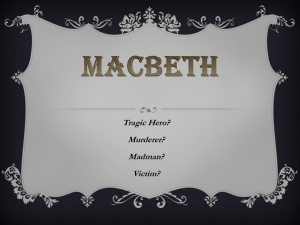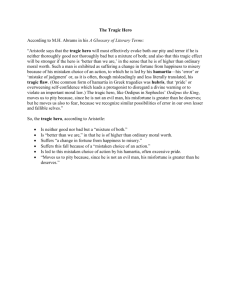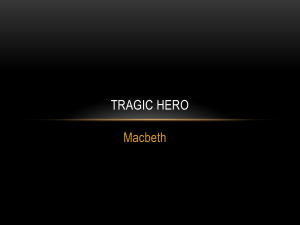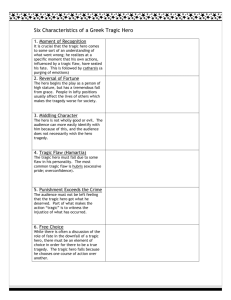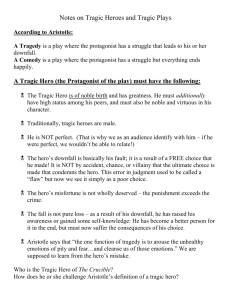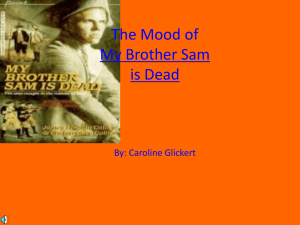According to Aristotle`s Definition of the Tragic Hero:
advertisement
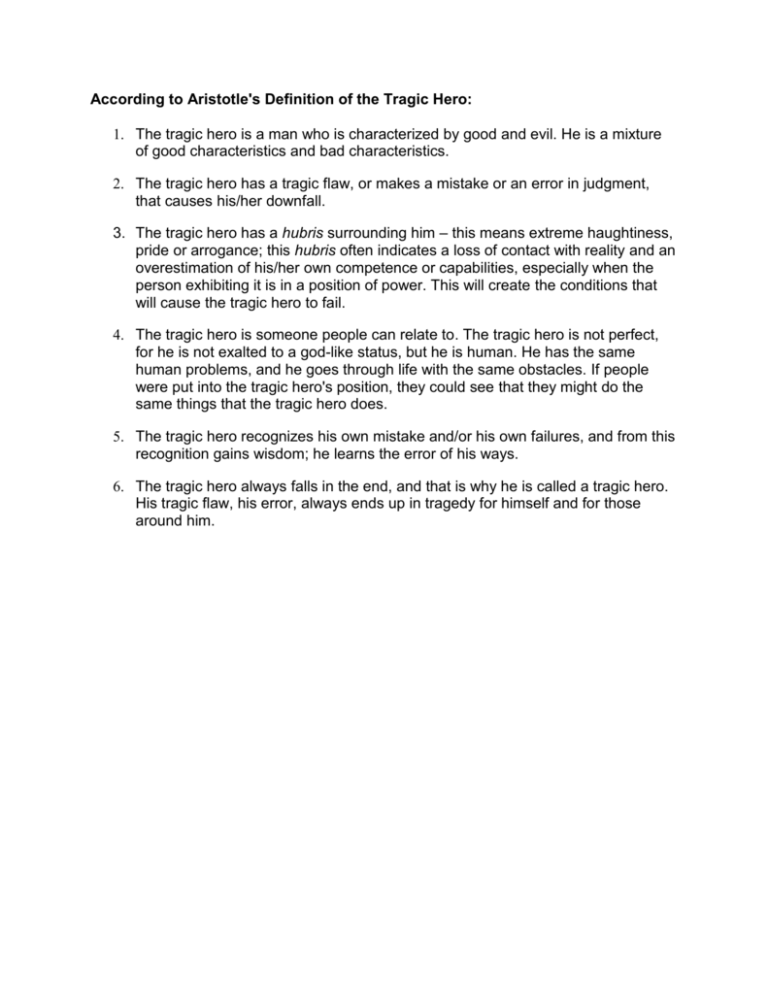
According to Aristotle's Definition of the Tragic Hero: 1. The tragic hero is a man who is characterized by good and evil. He is a mixture of good characteristics and bad characteristics. 2. The tragic hero has a tragic flaw, or makes a mistake or an error in judgment, that causes his/her downfall. 3. The tragic hero has a hubris surrounding him – this means extreme haughtiness, pride or arrogance; this hubris often indicates a loss of contact with reality and an overestimation of his/her own competence or capabilities, especially when the person exhibiting it is in a position of power. This will create the conditions that will cause the tragic hero to fail. 4. The tragic hero is someone people can relate to. The tragic hero is not perfect, for he is not exalted to a god-like status, but he is human. He has the same human problems, and he goes through life with the same obstacles. If people were put into the tragic hero's position, they could see that they might do the same things that the tragic hero does. 5. The tragic hero recognizes his own mistake and/or his own failures, and from this recognition gains wisdom; he learns the error of his ways. 6. The tragic hero always falls in the end, and that is why he is called a tragic hero. His tragic flaw, his error, always ends up in tragedy for himself and for those around him.

